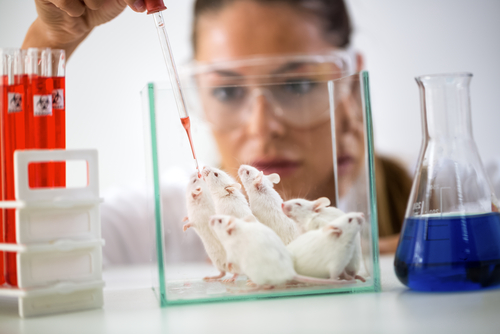Fertility Treatments Can Increase Risk of Angelman Syndrome, Other Disorders, Mouse Study Finds
Written by |

Fertility treatments could make babies more prone to genetic errors that lead to the development of Angelman syndrome and other disorders, an early study in mice has found.
Contrary to what was anticipated by researchers, older maternal age did not increase the frequency of such problems in mice, suggesting that older women are not at greater risk of conceiving babies with these disorders.
The findings were reported in the study “Perturbations in imprinted methylation from assisted reproductive technologies but not advanced maternal age in mouse preimplantation embryos,” published the journal Clinical Epigenetics.
Advanced maternal age, defined as 35 years and older, may increase the chances of giving birth to a child with genetic mutations and consequent diseases.
A team of researchers at the Magee-Womens Research Institute (MWRI) wanted to understand if babies born to older mothers were likely to get a type of genetic defect called epigenetic changes, which can lead to Angelman syndrome and other disorders.
Epigenetic changes are modifications in DNA or proteins that do not change the DNA sequence but can affect gene expression, meaning they can help turn a gene “on” or “off,” and consequently promote or silence the production of proteins.
One of the most important of such changes is DNA methylation, which typically silences genes. About 3% to 5% of Angelman syndrome cases are caused by DNA methylation changes called imprinting errors. These inactivate the maternal copy of the UBE3A gene, which is the copy passed from the mother to her child.
Usually, imprinting errors occur after the egg has been fertilized and following initial cell division. This causes the subsequent daughter cells to acquire aberrant epigenetic marks and result in a baby with the disease.
Due to the decline in fertility with age, older women often turn to assisted reproductive technologies (ARTs) to become pregnant. This could explain why there is a higher incidence of rare diseases such as Angleman syndrome among children born through fertility treatments.
Maternal age, however, is likely not the only factor. ARTs themselves can cause DNA methylation errors in egg cells and early embryos, potentially contributing to a greater prevalence of diseases in babies born through ARTs.
To isolate one factor from another — the mother’s age from the use of fertilization treatments — scientists performed experiments in mice.
They grouped female mice by age, ranging from the mouse equivalent of teenagers to 45-year-old women.
Some mice were given fertility treatments similar to those used in ARTs, including hormone injections to boost ovulation and embryos cultured in a Petri dish, while a control group of mice was allowed to conceive naturally.
Quantification of DNA methylation in embryos revealed that both hormone therapy and embryo culture caused imprinting errors at critical spots in the genome. These negative effects were even greater when the two procedures were used together.
In contrast, the older age of female mice did not impact DNA methylation patterns and imprinting errors, either in the female eggs or early embryos.
“Overall, these results indicate that ARTs, and not maternal age, are the major contributor to imprinted methylation errors,” the researchers wrote.
“It wasn’t what we were expecting,” the study’s senior author Mellissa Mann, PhD, principal investigator at MWRI and professor at the University of Pittsburgh, said in a news release.
“We know that as a woman ages, there are a lot of molecular changes happening to her eggs, so we thought that these changes could be leading to abnormal DNA methylation. We were quite surprised that it didn’t.”
The study’s lead author, Audrey Kindsfather, a medical student researcher at MWRI, noted that ART is valuable, but the methods still need improvement.
“These are wonderful technologies, but not the same as spontaneously conceiving,” Kindsfather said. “Lots more research needs to be done to improve fertility treatments.”
Next, it will be crucial to develop minimally invasive markers for identifying embryos with imprinting errors and ultimately prevent the birth of ART-conceived children with imprinting disorders.
“Women of advanced maternal age might have one less thing to worry about,” Kindsfather added. “We need clinical studies to back that up, but this is a promising animal model that clinical studies could be based on.”





